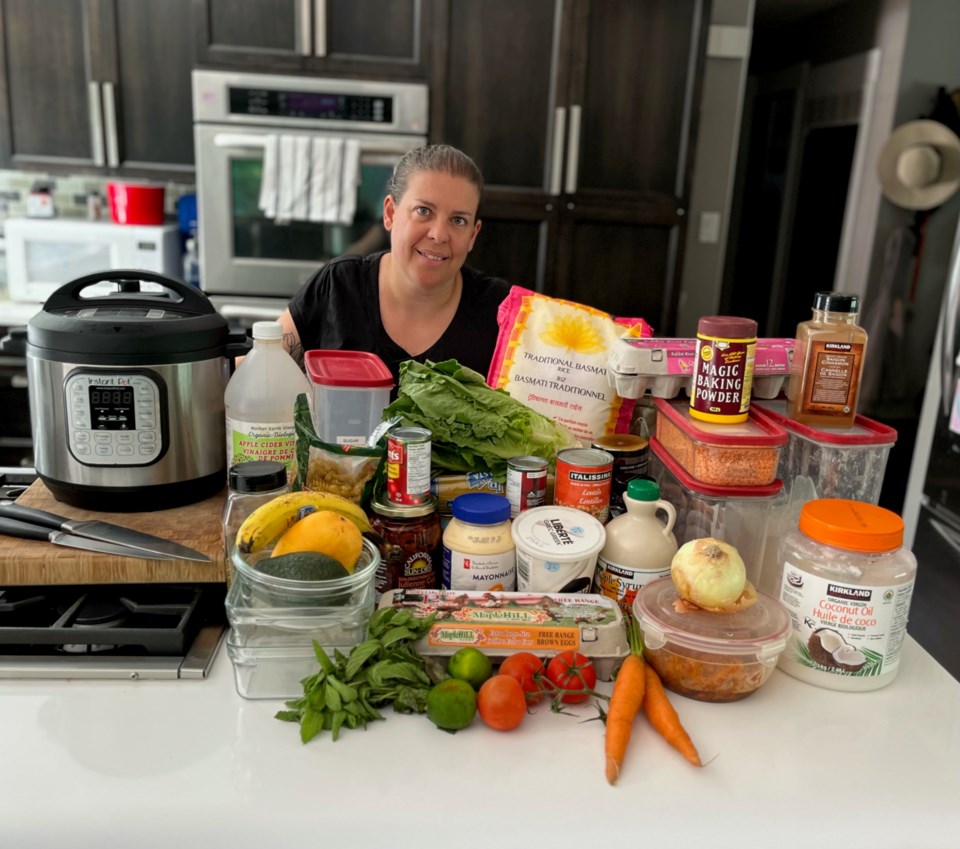Like so many Whistler locals, Natalie Kingi watched as demand for the local food bank shot to record highs in the thick of the COVID-19 pandemic. Knowing the demographics of Whistler, with its young-leaning populace, a not insignificant portion of which is far away from home and family for the first time, Kingi had an idea: a non-profit community kitchen where locals could have filling and nutritious meals prepared for them.
“There’s one thing receiving food and there’s another thing knowing what to do with it, knowing how to make three random ingredients into a meal,” said the New Zealand native and avid home cook. “I make everything from scratch, and to me, it’s easy, but other people don’t know how to do it. When the food bank has, for example, an excess of chickpeas, what do people who don’t know how to cook chickpeas do with it?”
Between the 20-something Whistlerites without much experience in the kitchen and the local families contending with the rising cost of living across the board, Kingi saw a niche that needed filling.
“Food insecurity is a real thing. I grew up pretty poor in New Zealand, so I get that side of it. I get not knowing where your next meal is coming from,” she said. “Imagine a place where you can feed a family of four [with a meal] you don’t have to prepare yourself, for $40. It’s not free and it’s not restaurant-quality, but it is filling.”
Kingi envisions the kitchen as a “community space where people can come and learn how to cook, hang out, and maybe rent the place and learn how to cook for themselves, or rent it for when their families come to visit.”
The problem, as is often the case in Whistler’s drum-tight commercial real estate market, is securing an affordable space. Kingi is keen to invest her own money into a permanent brick-and-mortar space, but friends in the industry have advised her to start small. With that in mind, Kingi has approached the owners of Chirp Co-Kitchen in Function Junction about renting the commissary kitchen part-time to get the venture going. She has also met with staff from the Whistler Community Services Society (WCSS), operators of the Whistler Food Bank as well as a range of other local food programs, such as the school program stocking communal fridges with healthy snacks available to local students.
“That’s the long-term plan: to work with WCSS to offer that third element [after food recovery and distribution]. It’s hot meals,” Kingi said. “The concept would be to work with the food bank and the restaurants and supermarkets to recover the food, and say one night there’s an abundance of chickpeas, vegetables and bread, then you recover that, get the balance of the ingredients you need to make a meal … and then you can make a curry that night, or some sort of meal, and then the next day put it in a wrap. It’s also so any leftovers can go to the [WCSS] fridge program they have at the schools.”
Ultimately, Kingi sees the concept based around a community more so than simply an affordable kitchen space.
“You can talk about things like having a culinary school there or having people just come and hang out and learn how to cook or getting teenagers in there learning how to cook food that’s not Kraft Dinner and ramen noodles,” she said. “You can do anything for a quarter of the cost, with a few key tools and the right attitude.”
At present, Kingi is hoping to gauge interest in the concept and secure volunteers.
Anyone interested in the concept can email Kingi at [email protected].




